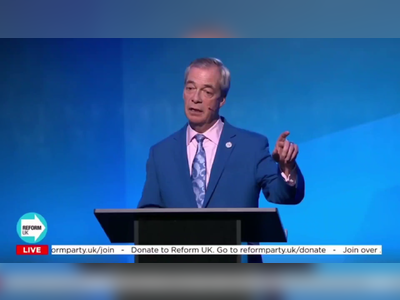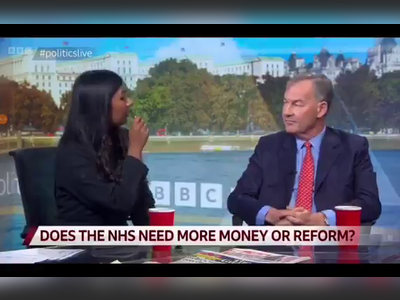
Why Britain chose Brexit
None of us will easily forget the emotional response to the Leave vote in 2016, the national and international lamentation and the angry reproaches and insults, heaped on the majority: they were ignorant losers, white, old, xenophobic and stupid, ‘gammon’ who would be better dead or disfranchised.
But leave aside the arrogance and snobbery; more fundamental was the basic ignorance of Europe shown by these zealous Europhiles. They mistook Brexit for a British, or English, aberration. In fact, it was the manifestation of a pan-European disillusionment with the ‘European project’.
Popular support for that project peaked 40 years ago, and has been in decline ever since. The French only just voted for the Maastricht Treaty even in 1992, the heyday of integration. In 2005 both the French and the Dutch voted against the draft EU constitution — a result Neil Kinnock (anticipating Remainer bile) described as ‘a triumph of ignorance’. Britain was due to vote too, but Tony Blair was able to cancel the referendum, with opinion polls showing a huge majority against, on the pretext that the constitution was defunct — ‘I was off the hook’.
The country was not, however. Arguably, from that point on, Britain’s membership depended on British governments avoiding any EU referendum. In the view of Helen Thompson, professor of political economy at Cambridge, ever since 2005 ‘a No vote would have been likely whatever the question on the ballot paper’.
The primary cause was economic decline. In 20 of the 27 present EU members, economic growth actually fell after they joined. As many economists had warned, the introduction of the euro in 1999 brought negligible benefits, major disadvantages and huge dangers. Far from accelerating trade between eurozone members, one of its main objects, that trade stagnated from the early 2000s onwards. Economic advantage therefore meant shifting trade to other continents.
Many people in their working lives must have realised the EU’s diminishing contribution to their employment prospects and prosperity, hence they became less politically involved: popular support for the EU itself follows the downward graph of intra-EU trade. Confidence in the future viability of the EU declined in parallel.
Consequently, the proportion of Europeans expressing support for or trust in ‘Europe’, which had risen in the 1980s to a peak of nearly 80 per cent, fell sharply in the 1990s, and even more sharply after the 2007 crisis, shrinking to only 40 per cent in 2013.
Britain was similarly distanced from Europe by the eurozone’s problems. In the early decades of its membership of the EEC, more than half its exports went to the Continent. This share has steadily diminished. The single market (which mostly applies to agricultural and manufactured goods, but not to services, where Britain has an advantage) has given little benefit.
British goods exports to the EU grew extremely slowly after the introduction of the euro, and barely at all after the 2007 crisis, whereas exports to non-EU markets grew many times faster.
Since the mid-1990s, UK economic growth has been consistently higher than that of the eurozone, yet it has a permanent structural trade deficit, as the single market and customs union cause it to buy expensive EU imports (especially food and cars) rather than those from cheaper producers.
Now, key UK industries such as machinery and cars send more than 60 per cent of their exports outside the EU. Britain’s deficit with Europe is partly offset by its trade surplus with the rest of the world.
The 2007-08 financial crisis did permanent damage to the EU. The European Central Bank at first did nothing and then perversely raised interest rates. The EU refused to ‘restructure’ (that is, write off) some of the unpayable debts of its weaker members. This led to a second disaster: the eurozone sovereign debt crisis, peaking in 2010-12. Greece, Italy, Spain, Portugal and Ireland were offered ‘bailout’ loans by the EU (increasing their indebtedness), but on condition — against basic economic sense — that they apply severe austerity measures: wage cuts, welfare cuts, job losses.
This aggravated the damage and by shrinking their economies actually increased their burden of debt. Greece, for example, had government debt amounting to an already huge 127 per cent of GDP in 2009, when austerity was imposed on it; but it rose to over 170 per cent as the economy shrank. Unemployment, especially among the young, reached new heights and stayed there. Britain became the employer of last resort for the youth of southern Europe. Ukip began to take off electorally.
By the early 2010s the EU’s popularity and legitimacy were falling in all but the most pliable countries. Italians and Greeks protested through the ballot box, but election results between 2011 and 2015 were nullified: the EU threatened financial meltdown if they refused to swallow their medicine, and the elected politicians gave in or were removed.
Unless the eurozone shed some of its members — politically unthinkable — no solution presented itself other than muddling through a succession of crises with last-minute improvisations, because while staying in the eurozone was a disaster, trying to leave it threatened catastrophe.
A paper by the European Council on Foreign Relations in 2013 admitted that ‘Euroscepticism… once seen as a British disease… has now spread across the Continent like a virus… everyone in the EU has been losing faith in the project.’ Britain, once ‘the Eurosceptic outlier’, now looked like the leader of a growing trend.
The May 2014 elections to the European parliament saw a surge of opposition to the EU almost everywhere outside Germany, mostly through anti-establishment parties of the left and right, and noticeably among young voters suffering from the economic slump. In Britain, Ukip topped the poll, while support for the Liberal Democrats, the most Europhile party, collapsed.
Nevertheless, there were and are differences between the British and their neighbours. Elsewhere, dissatisfaction with the EU sometimes meant wanting it to be more effective, even more interventionist, at least for a substantial middle-class minority. But in Britain it meant the opposite: ‘less Europe’ and even ‘no Europe’, rather than ‘more Europe’.
Opinion polls over the years have shown this consistently. If we look back before the post-referendum turbulence, the UK was the country in which fewest people (only 6 per cent) wanted more power to be given to Brussels; whereas in France and Spain, although more people than in Britain expressed ‘unfavourable’ views of the EU, more than 30 per cent wanted it to be more centralised.
Far fewer people in Britain (only 5 per cent) felt ‘more European than national’, and few wanted the EU flag to fly on public buildings — though it is almost universal elsewhere. Britain, above all, was the only member country in which the majority felt more confident in facing the future outside than inside the EU. This, surely, reflects the economic experiences of the previous generation.
From the 1990s onwards, as we have seen, increasing numbers of Europeans had turned against integration and EU policies. This showed itself first in negative or ambivalent votes on the Maastricht Treaty in France and Denmark in 1992, then on the euro (Denmark voted No in 2000 and Sweden in 2003), and again in the 2005 European Constitution referendums.
In France — a prefiguration of the British vote 11 years later — only professionals, the wealthiest districts of the Paris region, and overseas territories had strongly voted Yes. Most recently, there have been No votes in Denmark (2015) and Holland (2016) on particular policies; and more importantly referendums or general elections in Italy and Greece (2015) expressed mass opposition to the EU’s economic impositions.
None of this seems to have made much impression on the British political class. Despite negative votes by the French, Dutch, Danes, Swedes, Irish and Greeks, our politicians were confident that they could persuade or scare the most sceptical nation in Europe into voting Yes, wiping the floor with the ‘headbangers’, and putting an end to the debate ‘for a generation’, perhaps for ever. Legislation for the ‘in-out referendum’ was therefore supported by overwhelming majorities in both Houses, and by all parties.
The plan was that David Cameron’s negotiations with the EU during 2015-16 would produce concessions on immigration, ‘ever-closer union’ and economic guarantees as a non-eurozone member sufficient to swing the vote. Polls suggested, indeed, that most people would want to stay in a ‘reformed’ EU with reduced powers. But that was never on offer.
This was not due solely to Cameron’s failings as a negotiator, flagrant though they were. Britain’s position outside the eurozone gave it little leverage, and moreover the zone’s successive financial crises had increased the desire of EU leaders to exert greater central control. This undermined Britain’s semi-detached political and financial status (especially that of the City of London). The dominant EU politicians saw no reason to make concessions or water down their own plans: Britain could accept them or leave.
In February 2016 Cameron admitted the game was up for his strategy of tweaking the EU in Britain’s interests. It was now plain that Britain had no significant influence within the EU — the end of a 40-year illusion. The electorate had to choose not its preferred halfway house, but ‘in or out’. Two things are surprising: that the result caused so much astonishment; and that the majority was so small.
Analysis of the vote shows that it was not as strange, and not indeed as ‘British’, as is generally supposed. At the time of the referendum, the percentage of people expressing a broadly ‘unfavourable’ view of the EU was very similar in the Netherlands (46 per cent), Britain (48 per cent), Germany (48 per cent) and Spain (49 per cent). Far more took a negative view in France (61 per cent) and especially Greece (71 per cent).
On specifically economic policy, many countries expressed greater ‘disapproval’ of the EU than the UK (55 per cent), including Sweden (59 per cent), Spain (65 per cent), France (66 per cent), Italy (68 per cent) and Greece (92 per cent). More people in France thought the EU was bad for France (38 per cent) than good (24 per cent). So the British voted in 2016 as typical Europeans. The outliers were Scotland and Northern Ireland, which for reasons of their own seemed more enthusiastically pro-EU than almost anywhere on the Continent.
The explanation for Brexit is therefore very simple. First, the British had been given an in-out vote, which no Continental politician would dream of offering. As President Macron admitted to Andrew Marr in January 2018, a majority in France had wanted a referendum on membership, and they would ‘probably’ have voted to leave — or at least a referendum would have been ‘hard to win’.
Second, as the UK was not a member of the eurozone (thanks to Gordon Brown, arguably the true architect of Brexit) the British electorate could choose to quit the EU without the risk of financial meltdown. For a eurozone country to leave would be fraught with danger for the public finances and private savings.
The Greeks, the Italians and the French, despite being more hostile to the EU than the British, have all backed off. Had we faced a similar risk, it would surely have been enough to ensure a Remain victory. As it was, fear of economic damage reduced a sizeable Eurosceptic majority to a slim margin for Leave.
In short, while one might of course applaud or deplore Brexit, it cannot reasonably be explained by British political or cultural peculiarities. It was a straightforward consequence of the failings of the EU, political and economic, which have had consequences across Europe.
Nevertheless, we almost found ourselves trapped within it by fear of the financial dangers of exit. Differences of history and temperament, which do exist, would then have been of no consequence, other than to leave us — like many of our European neighbours — in a state of festering but impotent discontent.
Popular support for that project peaked 40 years ago, and has been in decline ever since. The French only just voted for the Maastricht Treaty even in 1992, the heyday of integration. In 2005 both the French and the Dutch voted against the draft EU constitution — a result Neil Kinnock (anticipating Remainer bile) described as ‘a triumph of ignorance’. Britain was due to vote too, but Tony Blair was able to cancel the referendum, with opinion polls showing a huge majority against, on the pretext that the constitution was defunct — ‘I was off the hook’.
The country was not, however. Arguably, from that point on, Britain’s membership depended on British governments avoiding any EU referendum. In the view of Helen Thompson, professor of political economy at Cambridge, ever since 2005 ‘a No vote would have been likely whatever the question on the ballot paper’.
The primary cause was economic decline. In 20 of the 27 present EU members, economic growth actually fell after they joined. As many economists had warned, the introduction of the euro in 1999 brought negligible benefits, major disadvantages and huge dangers. Far from accelerating trade between eurozone members, one of its main objects, that trade stagnated from the early 2000s onwards. Economic advantage therefore meant shifting trade to other continents.
Many people in their working lives must have realised the EU’s diminishing contribution to their employment prospects and prosperity, hence they became less politically involved: popular support for the EU itself follows the downward graph of intra-EU trade. Confidence in the future viability of the EU declined in parallel.
Consequently, the proportion of Europeans expressing support for or trust in ‘Europe’, which had risen in the 1980s to a peak of nearly 80 per cent, fell sharply in the 1990s, and even more sharply after the 2007 crisis, shrinking to only 40 per cent in 2013.
Britain was similarly distanced from Europe by the eurozone’s problems. In the early decades of its membership of the EEC, more than half its exports went to the Continent. This share has steadily diminished. The single market (which mostly applies to agricultural and manufactured goods, but not to services, where Britain has an advantage) has given little benefit.
British goods exports to the EU grew extremely slowly after the introduction of the euro, and barely at all after the 2007 crisis, whereas exports to non-EU markets grew many times faster.
Since the mid-1990s, UK economic growth has been consistently higher than that of the eurozone, yet it has a permanent structural trade deficit, as the single market and customs union cause it to buy expensive EU imports (especially food and cars) rather than those from cheaper producers.
Now, key UK industries such as machinery and cars send more than 60 per cent of their exports outside the EU. Britain’s deficit with Europe is partly offset by its trade surplus with the rest of the world.
The 2007-08 financial crisis did permanent damage to the EU. The European Central Bank at first did nothing and then perversely raised interest rates. The EU refused to ‘restructure’ (that is, write off) some of the unpayable debts of its weaker members. This led to a second disaster: the eurozone sovereign debt crisis, peaking in 2010-12. Greece, Italy, Spain, Portugal and Ireland were offered ‘bailout’ loans by the EU (increasing their indebtedness), but on condition — against basic economic sense — that they apply severe austerity measures: wage cuts, welfare cuts, job losses.
This aggravated the damage and by shrinking their economies actually increased their burden of debt. Greece, for example, had government debt amounting to an already huge 127 per cent of GDP in 2009, when austerity was imposed on it; but it rose to over 170 per cent as the economy shrank. Unemployment, especially among the young, reached new heights and stayed there. Britain became the employer of last resort for the youth of southern Europe. Ukip began to take off electorally.
By the early 2010s the EU’s popularity and legitimacy were falling in all but the most pliable countries. Italians and Greeks protested through the ballot box, but election results between 2011 and 2015 were nullified: the EU threatened financial meltdown if they refused to swallow their medicine, and the elected politicians gave in or were removed.
Unless the eurozone shed some of its members — politically unthinkable — no solution presented itself other than muddling through a succession of crises with last-minute improvisations, because while staying in the eurozone was a disaster, trying to leave it threatened catastrophe.
A paper by the European Council on Foreign Relations in 2013 admitted that ‘Euroscepticism… once seen as a British disease… has now spread across the Continent like a virus… everyone in the EU has been losing faith in the project.’ Britain, once ‘the Eurosceptic outlier’, now looked like the leader of a growing trend.
The May 2014 elections to the European parliament saw a surge of opposition to the EU almost everywhere outside Germany, mostly through anti-establishment parties of the left and right, and noticeably among young voters suffering from the economic slump. In Britain, Ukip topped the poll, while support for the Liberal Democrats, the most Europhile party, collapsed.
Nevertheless, there were and are differences between the British and their neighbours. Elsewhere, dissatisfaction with the EU sometimes meant wanting it to be more effective, even more interventionist, at least for a substantial middle-class minority. But in Britain it meant the opposite: ‘less Europe’ and even ‘no Europe’, rather than ‘more Europe’.
Opinion polls over the years have shown this consistently. If we look back before the post-referendum turbulence, the UK was the country in which fewest people (only 6 per cent) wanted more power to be given to Brussels; whereas in France and Spain, although more people than in Britain expressed ‘unfavourable’ views of the EU, more than 30 per cent wanted it to be more centralised.
Far fewer people in Britain (only 5 per cent) felt ‘more European than national’, and few wanted the EU flag to fly on public buildings — though it is almost universal elsewhere. Britain, above all, was the only member country in which the majority felt more confident in facing the future outside than inside the EU. This, surely, reflects the economic experiences of the previous generation.
From the 1990s onwards, as we have seen, increasing numbers of Europeans had turned against integration and EU policies. This showed itself first in negative or ambivalent votes on the Maastricht Treaty in France and Denmark in 1992, then on the euro (Denmark voted No in 2000 and Sweden in 2003), and again in the 2005 European Constitution referendums.
In France — a prefiguration of the British vote 11 years later — only professionals, the wealthiest districts of the Paris region, and overseas territories had strongly voted Yes. Most recently, there have been No votes in Denmark (2015) and Holland (2016) on particular policies; and more importantly referendums or general elections in Italy and Greece (2015) expressed mass opposition to the EU’s economic impositions.
None of this seems to have made much impression on the British political class. Despite negative votes by the French, Dutch, Danes, Swedes, Irish and Greeks, our politicians were confident that they could persuade or scare the most sceptical nation in Europe into voting Yes, wiping the floor with the ‘headbangers’, and putting an end to the debate ‘for a generation’, perhaps for ever. Legislation for the ‘in-out referendum’ was therefore supported by overwhelming majorities in both Houses, and by all parties.
The plan was that David Cameron’s negotiations with the EU during 2015-16 would produce concessions on immigration, ‘ever-closer union’ and economic guarantees as a non-eurozone member sufficient to swing the vote. Polls suggested, indeed, that most people would want to stay in a ‘reformed’ EU with reduced powers. But that was never on offer.
This was not due solely to Cameron’s failings as a negotiator, flagrant though they were. Britain’s position outside the eurozone gave it little leverage, and moreover the zone’s successive financial crises had increased the desire of EU leaders to exert greater central control. This undermined Britain’s semi-detached political and financial status (especially that of the City of London). The dominant EU politicians saw no reason to make concessions or water down their own plans: Britain could accept them or leave.
In February 2016 Cameron admitted the game was up for his strategy of tweaking the EU in Britain’s interests. It was now plain that Britain had no significant influence within the EU — the end of a 40-year illusion. The electorate had to choose not its preferred halfway house, but ‘in or out’. Two things are surprising: that the result caused so much astonishment; and that the majority was so small.
Analysis of the vote shows that it was not as strange, and not indeed as ‘British’, as is generally supposed. At the time of the referendum, the percentage of people expressing a broadly ‘unfavourable’ view of the EU was very similar in the Netherlands (46 per cent), Britain (48 per cent), Germany (48 per cent) and Spain (49 per cent). Far more took a negative view in France (61 per cent) and especially Greece (71 per cent).
On specifically economic policy, many countries expressed greater ‘disapproval’ of the EU than the UK (55 per cent), including Sweden (59 per cent), Spain (65 per cent), France (66 per cent), Italy (68 per cent) and Greece (92 per cent). More people in France thought the EU was bad for France (38 per cent) than good (24 per cent). So the British voted in 2016 as typical Europeans. The outliers were Scotland and Northern Ireland, which for reasons of their own seemed more enthusiastically pro-EU than almost anywhere on the Continent.
The explanation for Brexit is therefore very simple. First, the British had been given an in-out vote, which no Continental politician would dream of offering. As President Macron admitted to Andrew Marr in January 2018, a majority in France had wanted a referendum on membership, and they would ‘probably’ have voted to leave — or at least a referendum would have been ‘hard to win’.
Second, as the UK was not a member of the eurozone (thanks to Gordon Brown, arguably the true architect of Brexit) the British electorate could choose to quit the EU without the risk of financial meltdown. For a eurozone country to leave would be fraught with danger for the public finances and private savings.
The Greeks, the Italians and the French, despite being more hostile to the EU than the British, have all backed off. Had we faced a similar risk, it would surely have been enough to ensure a Remain victory. As it was, fear of economic damage reduced a sizeable Eurosceptic majority to a slim margin for Leave.
In short, while one might of course applaud or deplore Brexit, it cannot reasonably be explained by British political or cultural peculiarities. It was a straightforward consequence of the failings of the EU, political and economic, which have had consequences across Europe.
Nevertheless, we almost found ourselves trapped within it by fear of the financial dangers of exit. Differences of history and temperament, which do exist, would then have been of no consequence, other than to leave us — like many of our European neighbours — in a state of festering but impotent discontent.










